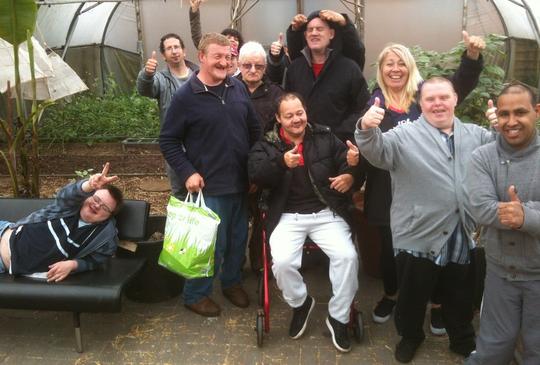
Q&A: Alex Wharton, Research Fellow at the University of Salford
Since joining the Sustainable Urban and Regional Futures (SURF) team in May 2012, Alex has been working to identify, explore, and realise opportunities for the co-production of a more sustainable Greater Manchester.
Here, he talks to us about his research and goals for the future.
Hi Alex, tell us a bit about what your research involves...
My research is focused on the value of community hubs in deprived areas of Greater Manchester. It involves asking some basic questions that might otherwise be taken for granted: What do they do? Why are they important? What are their main challenges?
In the process, it raises serious questions about society, about social science and about oneself: What we do? Why? How? For whom?
Can you give some examples of how your work connects with different places and communities?
My research is grounded in the views of people who work with and for communities in various areas of Greater Manchester, including Langworthy, East Salford, Charlestown, Hulme, Old Trafford, East Bury, Greenacres, Brinnington, Scholes and Hattersley.
It’s about them – the managers of community hubs – and it’s about the communities that they connect with: Indian senior citizens, NHS service users, young people, unemployed men, parent and toddler groups, asylum seekers, volunteers, council officers, artists, model airplane enthusiasts, other managers, clinical commissioning groups - all sorts really!

What are the highlights and challenges of conducting your research?
The highlights have been (1) talking with people who care passionately about their work – about creating spaces and opportunities for people to pursue their interests, to socialize and to learn – and (2) facilitating an action learning set for centre managers, so that they can learn from and support each other in doing what they do so well.
The main challenge for me as a social scientist is to make the case for and to engage in co-operative inquiry (or knowledge co-production).
Action learning comes close to that ideal, I think, because it encourages individuals to learn from each other about shared interests in an open and reciprocal manner; but it runs up against the view that the role of a social scientist is to give people the facts and show them how to make rational decisions.
So what next?
The next step for me is to do some comparative research, looking at the relationship between community organisations, local authorities and universities in different fields (e.g. regeneration, social care, health and well-being, community development) and in different places – in the UK and elsewhere.
To learn more about the SURF team, head to their web-page on the University of Salford's main site.
Contributor Profile
Grace is a writer and editor here at Platform and also works as a Copywriter at Creative Concern.
She graduated from The University of Nottingham in 2013 with a degree in English and Creative Writing and afterwards interned within the editorial department of a number of publications, before securing a position as Assistant Editor at a Manchester based magazine.




